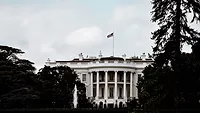Going Beyond Security: Four Concerns Shared by Public and Private Officials

Differences in roles as well as the criminal and civil arenas in which public and private officers work help define education, training and sharing issues, according to Ronald Worst.
There are shared skills, experiences and security technologies (such as video and training) that bring together public and private security.
Over the years, our U.S. justice system has emerged as an appealing, challenging and at times disappointing system of laws in regards to the civil and criminal systems, both at the Federal and state levels. In addition, the justice system is in a consistent state of flux and friction between civil law versus criminal law.
Throughout my career in private practice as a criminologist specializing in safety, security and financial crimes, I have experienced, examined and analyzed the explosive growth in development of privatized safety and security professionals nationwide. With this continuous growth come differences in approaches to safety and security as well as civil liabilities and criminal convictions. The goal here is to educate both private and public safety professionals on identifying the differences, and thus together create a solid approach, especially when it comes to teamwork between public and private security officials.
Proactive Deterrence vs. Reactive Response
For years, public policing was considered a reacting response to criminal activities and thus assessing the aftermath of a crime and taking the appropriate actions. In this regard, public policing had very little effect with regards to being proactive as a physical deterrence to reducing criminal activity. Possible reasons were financial with the inability to retain more public officers in relation to their jurisdiction population growth as well as the workload of many public officers. With the stable growth of private security professionals, the ability to fill in the proactive gap as a physical deterrence to criminal activities has provided resources necessary to perform this task. The transition of private security professionals in a proactive physical deterrent position to cover both commercial and private properties, and public officer’s duties to respond to criminal activities, can be a strong way to work together but it demands more education.Passive-Aggressive Communication Skills
In public policing, interrogating defendants is a term used when communicating with them to draw information or a concluding confession. In that regard, private security professionals interview witnesses or possible defendants when attempting to collect information. An ability to distinguish passive-aggressive and direct-aggressive interviewing approaches is important.In addition, knowing when to apply those interviewing techniques is crucial in gathering information when an incident or accident occurs. It’s more important to listen to the words that come out of people’s mouths than it is to make an attempt to read body language. Words can be very powerful when interviewing witnesses or defendants. One thing to keep in mind – to that person, it is more important to protect his character than it is for that person to protect his reputation. Someone’s character needs only one mistake to permanently label that person for life. A person’s reputation can be built up and shot down numerous times throughout that person’s lifetime.
Private Security Officers vs. Public Officers
Private and public professionals have the authority to observe and report as well as the capability to act in good faith. With respect to the civil justice system, public officers have a qualified immunity by Federal law against any civil lawsuits when acting in good faith. On the other hand, private security professionals have no qualified immunity against civil actions. Even private security professionals who act in good faith and follow the appropriate procedures on safety and security still have the possibility of civil actions being filed. Thus a solid defense argument in civil court may be required.Civil Justice System vs. the Criminal Justice System
Not only do we have two divisions in our U.S. justice system, private security professionals and public police officers take a majority position on either side of our civil and criminal justice system. Public officers work within the criminal justice system when examining felony and misdemeanor charges. Private security professionals work within the civil justice system when examining negligence and liability claims. Both professions take on a majority of either justice system.For example, civil police misconduct or negligence would be the public officer’s minority experience in the civil justice system. In addition, private security professional’s minority experience in the criminal justice system is when “the client” decides to file criminal charges against a defendant along with “the client’s” civil case.
In conclusion, there are many differences between public and private officers, which help determine the education, training and liability between them. The key is working together and acknowledging each other’s strengths.
Looking for a reprint of this article?
From high-res PDFs to custom plaques, order your copy today!




